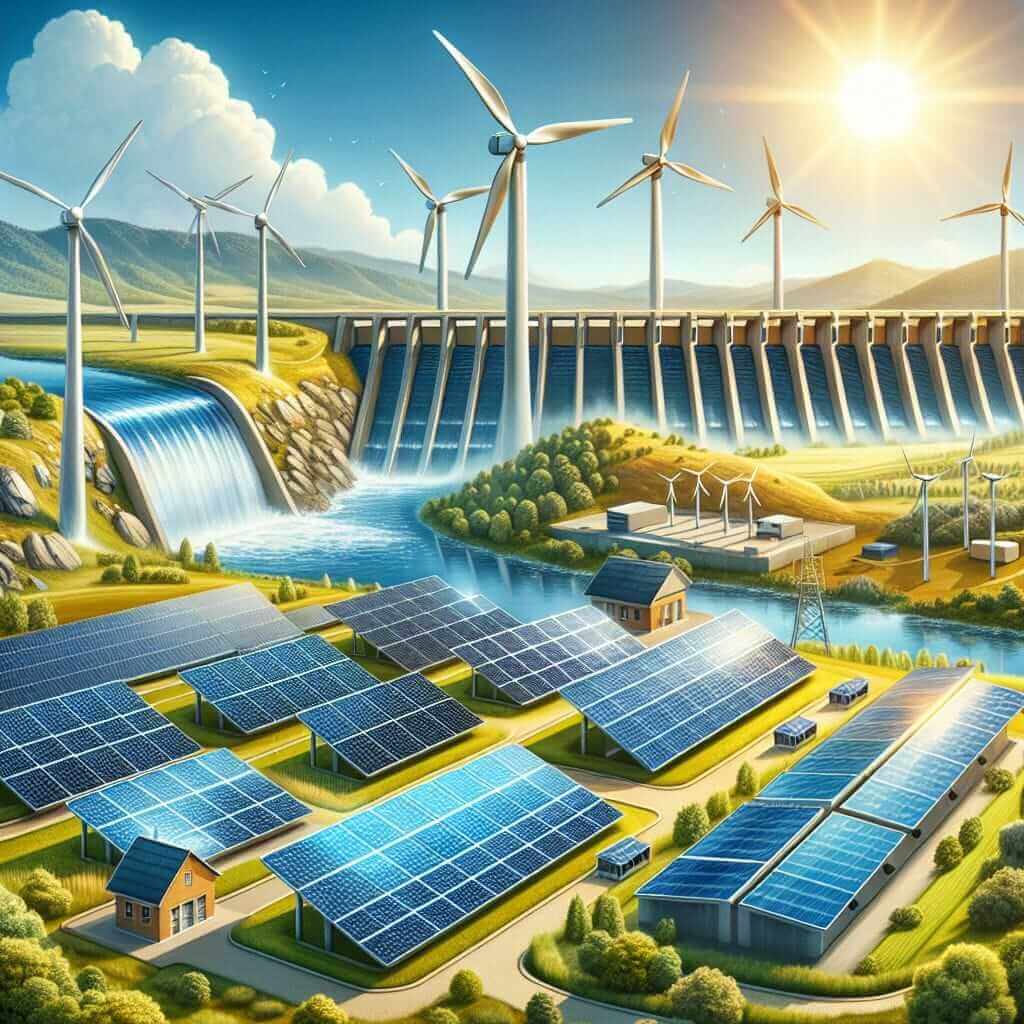The Reading section of the IELTS exam often includes passages on recent global trends and significant policy changes. Among the myriad of topics, “renewable energy” has become particularly prevalent, given its growing impact on global economic policies. In the past, topics revolving around climate change, sustainable development, and energy policies have frequently appeared. These topics are not only timely but also significant, making renewable energy a plausible subject for future exams. This guide will help you navigate through sample readings on this topic, offering practice materials and insights into common pitfalls.
IELTS Reading Practice Test on Renewable Energy
Reading Passage
How Renewable Energy Influences Global Economic Policies
Globally, the shift towards renewable energy is transforming economic policies in unprecedented ways. Nations invest heavily in renewable technologies, driven by environmental imperatives, economic opportunities, and the need for energy security. This paradigm shift impacts everything from employment patterns to geopolitical dynamics.
Investment in renewable energy technologies, such as solar and wind power, has grown exponentially over the past decade. Governments offer incentives like tax breaks and subsidies to encourage the adoption of renewables. Policies designed to support renewable energy infrastructure are now central to national economic strategies. These policies often include grid modernization, energy storage solutions, and increased funding for research and development in clean technology.
<
Moreover, the renewable energy sector significantly influences job creation. Transitioning from fossil fuels to renewable energy sources requires a skilled workforce. This shift results in the development of new types of jobs, particularly in the manufacturing and maintenance of renewable energy systems. For instance, solar panel installations and wind turbine maintenance have become major employment sectors in numerous countries.
On the international stage, renewable energy is reshaping geopolitical relations. Traditional oil-rich nations are witnessing a decline in their economic influence as countries with abundant renewable resources gain prominence. This redistribution of power alters global trade patterns and strategic alliances.
Furthermore, renewable energy policies play a crucial role in combating climate change. Countries with stringent renewable energy targets often lead in reducing carbon emissions. These nations set examples through ambitious commitments under international agreements such as the Paris Accord.
In conclusion, the influence of renewable energy on global economic policies is multifaceted. It drives economic growth, promotes job creation, alters geopolitical dynamics, and supports environmental sustainability. As renewable energy continues to evolve, its impact on economic policies will likely intensify, prompting further shifts in national and international strategies.
Questions
Multiple Choice (Choose the correct letter)
-
What drives nations to invest in renewable energy technologies?
- A. Environmental imperatives, economic opportunities, and energy security needs
- B. Environmental concerns alone
- C. Economic opportunities only
- D. Energy security needs alone
-
Which area has seen job creation due to the renewable energy sector?
- A. Petrochemical industry
- B. Solar panel installations and wind turbine maintenance
- C. Traditional oil extraction
- D. Coal mining
True/False/Not Given
- Governments avoid offering financial incentives for renewable energy adoption.
- Renewable energy policies play a pivotal role in international climate agreements.
- Traditional oil-rich nations are gaining more economic influence due to renewables.
Matching Headings (Match the paragraph with appropriate heading)
A. Transition in Global Job Market
B. International Impact of Renewable Energy
C. Economic Policies and Renewable Incentives
D. Influence on Climate Change Policies
E. Technological Advancements and Investments
- Paragraph 2
- Paragraph 3
- Paragraph 4
- Paragraph 5
Answer Key and Explanations
Multiple Choice
-
A. Environmental imperatives, economic opportunities, and energy security needs
- Explanation: The passage mentions that nations invest in renewables driven by these three factors.
-
B. Solar panel installations and wind turbine maintenance
- Explanation: The passage specifies these employment sectors as major areas of job creation.
True/False/Not Given
-
False
- Explanation: The passage states that governments offer financial incentives such as tax breaks and subsidies.
-
True
- Explanation: The passage indicates that renewable energy policies are crucial in international climate agreements.
-
Not Given
- Explanation: The passage mentions a decline in influence but does not state gaining more influence.
Matching Headings
-
E. Technological Advancements and Investments
- Explanation: Paragraph 2 discusses investments and policies supporting renewable technology.
-
A. Transition in Global Job Market
- Explanation: Paragraph 3 focuses on job creation and the types of new jobs in the renewable sector.
-
B. International Impact of Renewable Energy
- Explanation: Paragraph 4 touches on how renewables are reshaping geopolitical relations.
-
D. Influence on Climate Change Policies
- Explanation: Paragraph 5 elaborates on the role of renewable energy policies in combating climate change.
Common Mistakes
- Misinterpreting the Passage: Skimming too quickly without grasping the main ideas.
- Overlooking Keywords: Missing out on significant terms that hint at the correct answers.
- Time Management: Spending too much time on difficult questions instead of moving on and returning later if time permits.
Vocabulary
- Paradigm Shift (noun) /ˌpær.əˈdaɪm ʃɪft/: A fundamental change in approach or underlying assumptions.
- Incentives (noun) /ɪnˈsɛn.tɪv/: A thing that motivates or encourages someone to do something.
- Geopolitical (adjective) /ˌdʒiː.oʊ.pəˈlɪt.ɪ.kəl/: Relating to politics, especially international relations, as influenced by geographical factors.
- Stringent (adjective) /ˈstrɪn.dʒənt/: Strict, precise, and exacting.
Grammar
- Relative Clauses: “Nations that invest in renewable technologies see economic benefits.”
- Passive Voice: “Policies are being formulated to support renewable energy.”
Advice for High Reading Scores
- Practice Regularly: Engage with various reading materials on current global issues.
- Expand Vocabulary: Enhance your understanding of complex terms related to energy and economics.
- Time Management: Develop strategies to manage your time effectively during the exam.
- Understand Question Types: Familiarize yourself with different IELTS question formats to navigate them efficiently during the test.
By integrating these strategies and knowledge, you’ll be better equipped to tackle the Reading section of the IELTS with confidence.